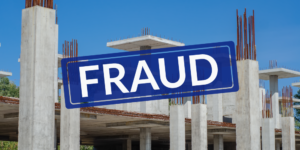
Kansas business owner Matthew McPherson is facing a prison sentence after participating in a scheme between September 2009 and March 2018 focused on obtaining $346 million federal government construction contracts that had been set aside for service-disabled veterans and certified minorities.
According to the US Department of Justice, McPherson was sentenced in federal court to two years in prison, and was forced to forfeit a total of $5,516,786 on January 5, 2022.
“This contractor not only defrauded the government, but cheated to get contracts that should have gone to firms led by disabled veterans and minority owners,” said US Attorney Teresa Moore. “His greed and deception allowed him to enrich himself at the expense of disabled veterans and minority owners. After forfeiting more than $5.5 million to the government and being sent to prison, he has learned the hard way that crime doesn’t pay.”
As the Department of Justice notes, McPherson is “neither a certified minority nor a veteran,” and was the owner of an unnamed construction company in Topeka, Kansas which was not eligible to compete for these contracts — with some calling the type of scheme “Rent-a-Vet” or “Rent-a-Minority” fraud.
McPherson and the other conspirators reportedly operated Zieson Construction Company during this period with African-American service-disabled veteran Stephon Ziegler serving as the legal owner. During this period, Zieson Construction received approximately 199 federal contracts which had been set aside for minority-owned and veteran-owned small businesses.
Following this, the conspirators used a Native American Zieson Construction employee as the front owner for Simcon Corporation in order to perpetrate the same scheme, receiving over $11 million in federal contracts.
McPherson originally pleaded guilty to a count of conspiracy in June 2019, while Ziegler pleaded guilty to making a false statement to the US Department of Veteran Affairs in May 2019.
As IRS-CI Special Agent in Charge Tyler Hatcher notes, “These crimes have a significant negative impact on small disadvantaged businesses.”
Unfortunately, fraud is a common and major issue within the construction industry, even if it isn’t on the scale of hundreds of millions or taking advantage of such a specific issue as this case.
“Fraud seems to happen more often in construction than in other industries, and it’s easy to see why,” says construction lawyer Alex Benarroche. “A typical project will often have a number of different project participants with tons of moving parts. Construction financing and the current system of payment are both a mess. And communication and transparency on many construction sites are practically non-existent.”
This goes a step further when contractors are dealing with the federal government. The False Claims Act allows people with evidence of fraud related to payment on government construction projects to sue the fraudulent party.
This means that parties found guilty of fraud may not only have to deal with the legal response from the government, they can be found liable for any party they’ve wronged along the payment chain.